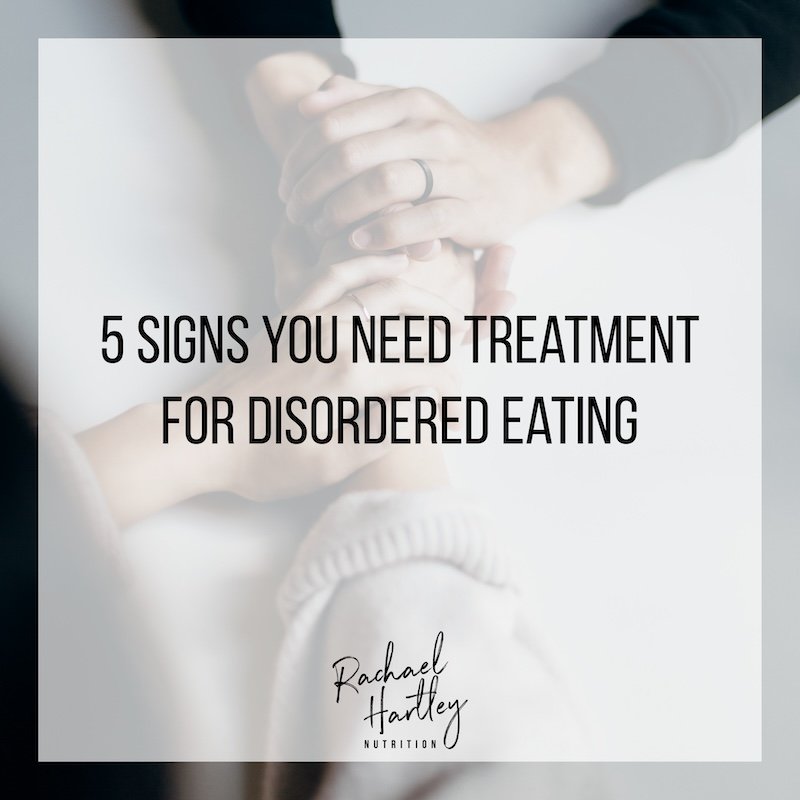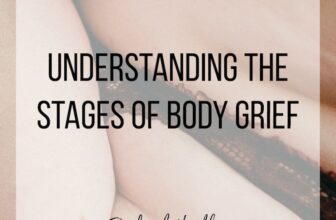
[ad_1]

Thoughts about food and your body take up the majority if your headspace.
If thinking about food and your body are a distraction from other important things in life, that’s a sign you need help. This can also be a sign that your body is medically in need of renourishment, because one of the symptoms of being underweight and/or undernourished is constant thoughts of food. In fact, many of my clients learn to identify an increase in food/body thoughts as a warning sign that they’ve been slipping with food. For many people these ruminating thoughts resolve or significantly diminish with adequate nutrition and weight gain.
You engage in compensatory behaviors with food, exercise or by purging.
Many people with disordered eating will find themselves stuck in a constant cycle of trying to make up for perceived “indiscretions” with food by trying to burn it off through exercise, or being stricter with their diet. As I remind my clients, this is an equation you will never solve – you can spend the rest of your life trying to make up for “mistakes,” or you can break free of that cycle. Another reminder: using laxatives, diuretics or making yourself throw up also is a sign you need help, even if it’s only on occasion, or if people around you do these things casually.
It’s hard to socialize or go out to eat because of your diet.
This isn’t automatically a sign of disordered eating. For some people with allergies or other medical food needs, these things can be a challenge. However if you are optionally choosing to avoid certain foods out of health concerns or to manage your weight, this is a sign that you need help. Orthorexia, a type of disordered eating where one obsessively focuses on the perceived healthfulness rather than weight or body size, can be just as serious as anorexia and deserves support.
The scale controls food and your mood.
Is hopping on the scale part of your morning routine? Does the number determine what or how much food you allow yourself to eat, or does it control how you feel about yourself that day? There are over 100 different factors that impact body size (link) and many reasons your weight will fluctuate by small amounts day-to-day that don’t indicate actual changes to adipose or lean body mass. You can drive yourself nuts trying to analyze and control the scale! If you have an overly dependent relationship with the scale, it is likely playing a part in your self worth. If so, you may need support in breaking up with the scale.
Your relationship with food and your body is negatively impacting your quality of life.
You don’t have to be experiencing any of the medical side effects of disordered eating to get help. It doesn’t have to qualify as a diagnosable eating disorder. Diagnostic criteria are used to determine insurance reimbursement and can be useful for providers in figuring out treatment paths. It is not a measurement of whether you are struggling or need help. If your attempts to control your body size or health are negatively impacting your quality of life, you deserve help. It really is as simple as that.
If you are looking for support in this new year, just reach out. We work with clients virtually throughout the US and my associate dietitian Kate sees clients in person out of our Columbia, SC office. We are also in network with BCBS and can accept insurance in many states. Read more about our practice philosophy and email if you’d like more information to see if we’re a good fit to work together.
[ad_2]






